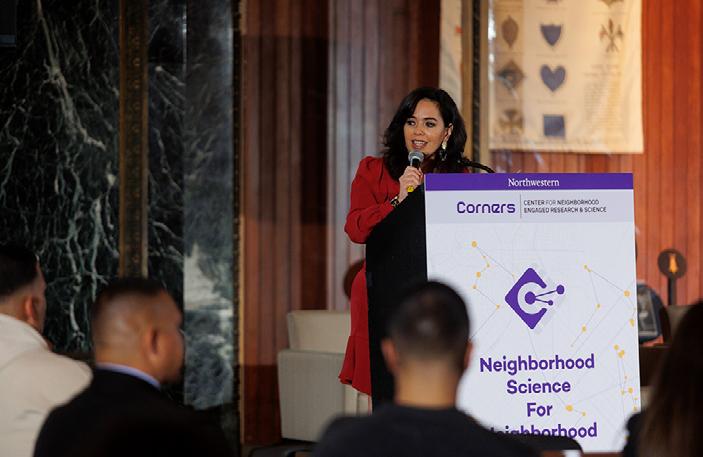
2 minute read
Closed for School, Closed for Democracy
A new book examines links between school closings and democratic disillusionment in Black and Brown communities
IPR : Why do mass school closings undermine democracy for Black Americans?
Advertisement
Nuamah : For most Americans, because public schools are provided at no cost, they become the mechanism for taking kids born at a disadvantage and facilitating their political and social mobility.
When a school closes, this raises important questions about how we can ensure that disadvantaged young people who most benefit from public schools can still experience positive life chances. We also know from political science that most Americans learn about democracy through the institutions they interact with the most. For many people that is schools. When you are a 6-year-old Black child and you learn that your school is being closed because it’s “a bad school,” you’re getting one of your earliest lessons about democracy.
In IPR social policy expert Sally Nuamah ’s award-winning book Closed for Democracy (Cambridge University Press, 2022), she investigates mass school closings in Chicago and Philadelphia in 2013 and how Black citizens who were affected by these closings mobilized politically to keep their schools open. She shows that ultimately the lack of response to their needs—either through closing schools or lack of investment in their schools—led to disillusionment with the government.
IPR spoke to Nuamah about her book (see p. 26) and the implications of her findings. This interview has been edited for length.
IPR : You coined the term collective participatory debt to describe the feeling of fatigue that citizens experience when they repeatedly engage in politics but they don’t get the response that they want. How does this concept fit into your book?
Nuamah : One thing that political scientists talk about is how the social contract is such that people vote and/or organize people at polls, for example, and that their participation translates to some kind of responsiveness from a local or national political leader in the form of policy change. That’s typically how the democratic social contract should work.
What I find in Closed for Democracy is that you have a group of people who engaged in what would be model citizenship—they do everything that a democracy would demand of a group that wants to secure change. But they don’t experience democratic responsiveness. And this contributes to their fatigue and disillusionment with the political system.
In particular, I find that not only do affected groups protest these school actions by organizing on the ground, [but] they also attend the community meetings that are required by the school district to make their concerns known. Then they go a step further after these community meetings to try to work for an elected school board by creating petitions.
Collective participatory debt is asking what do they get for becoming these model citizens: Do they actually experience the responsiveness that’s commensurate with their participation? It’s basically finding that they don’t.
People find that, even if they are able to save a school or two, that they don’t actually get the structural changes that they’re hoping for, which is no school being closed or more funding for their schools. People express fatigue and disappointment and disillusionment with American democracy because they do everything democracy asks of them, but they find democracy is still closed to them.
From that experience you’re learning about the ways that political leaders value people who look like you and your positionality in American democracy as a citizen.
This also has important implications for your desire to participate in politics in the future. In particular, those I study become less interested in participating in politics. But when you’re already from a disadvantaged background, your participation in democracy is the only way historically that you have received any kind of political or social change.










